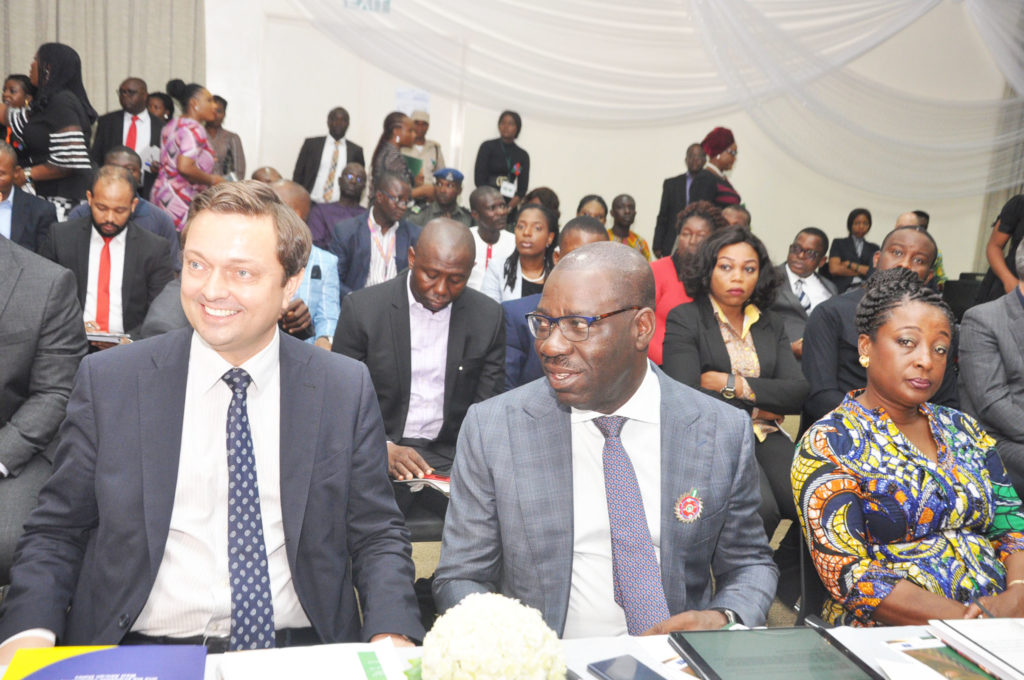…call on other states to adopt Edo intervention model
…EU commits $1bn to stem irregular migration in Africa
The European Union (EU), the World Bank and the National Agency for the Prohibition of Trafficking in Persons (NAPTIP) have commended Edo State Government’s unrelenting and well-articulated effort to curb human trafficking and illegal migration in the state.
The stakeholders disclosed this at the 2nd Roundtable Dialogue on Managing Migration Through Development Programme (MMDP), a two-day event which kicked-off on Tuesday in Benin City, the Edo State capital.
In his address, Edo State Governor, Mr. Godwin Obaseki, said that all efforts by local and international partners in the fight against irregular migration needs to be synergised to achieve the desired results.
Obaseki said a coordination matrix designed by Edo Government and her partners will create a platform for better collaboration and cooperation among stakeholders, avoid duplication of efforts and improve efficiency in migration management.
He said the state government has in the last one year, entered into a collaboration with key partners which has significantly changed the narrative with regard to the fight against the scourge.
“Since the launch of Round Table Dialogue in Abuja in May this year, several partnerships have been birthed which have contributed to the success stories” he said.
The governor noted that the state government will continue to demonstrate political will to tackle the problem of human trafficking and illegal migration by constantly finding a common ground and seeking more collaborations with other stakeholders.
Minister of Foreign Affairs, Geoffrey Onyeama, who was represented by Mr. Martin Eze, said resettlement of returnees is at the heart of the federal government’s intervention programme.
He appealed to foreign partners, especially countries in the European Union to smoothen their visa issuance process so that eligible Nigerians, who have genuine reasons to travel abroad are not frustrated.
In his keynote address, EU Ambassador to Nigeria and the Economic Community of West African States (ECOWAS), Mr. Ketil Karlsen, expressed appreciation for efforts by President Muhammadu Buhari and Governor Obaseki which have seen Nigeria drop to the sixth position among countries whose citizens engage in irregular migration.
Karlsen also commended Edo State government for launching the MMDP Coordination Matrix, noting that the EU would not fund any state operating in isolation without involving local stakeholders.
“We are doing better now by being transparent and including our activities in the matrix and by guaranteeing that every step we take will be in that spirit,” he said.
Karlsen said the European Investment Bank has expressed willingness to increase investment in funding economic programmes in Africa to one billion dollars to empower youths and discourage irregular migration.
He added that a holistic approach and a legal framework has been identified to capture the return of illegal migration via investment in migration institution, youths and jobs.
Director General of NAPTIP, Dame Julie Okah-Donli, represented by the Director of Research and Programme Development, Godwin Morka, said that the state government’s model should be studied and replicated in other states, noting that the tactical and far-reaching response by the state government is commendable.
She noted that the state government was quite proactive in nipping the menace in the bud, noting that the coordinated approach and the institutional reforms set up to tackle the menace helped in large measure to restore hope to victims of human trafficking in the state.
Programme Manager, MMDP, Dr. May Ikeora, said that government’s response to mitigating illegal migration include resettlement of migrant returnees, skills development, and development of at-risk communities.
She expressed optimism that the launch of the MMDP coordination matrix will make effort at managing migration more efficiently, and said that, “The coordination matrix will lead to better information exchange and strategic planning that is evidence-based and sustainable.”


